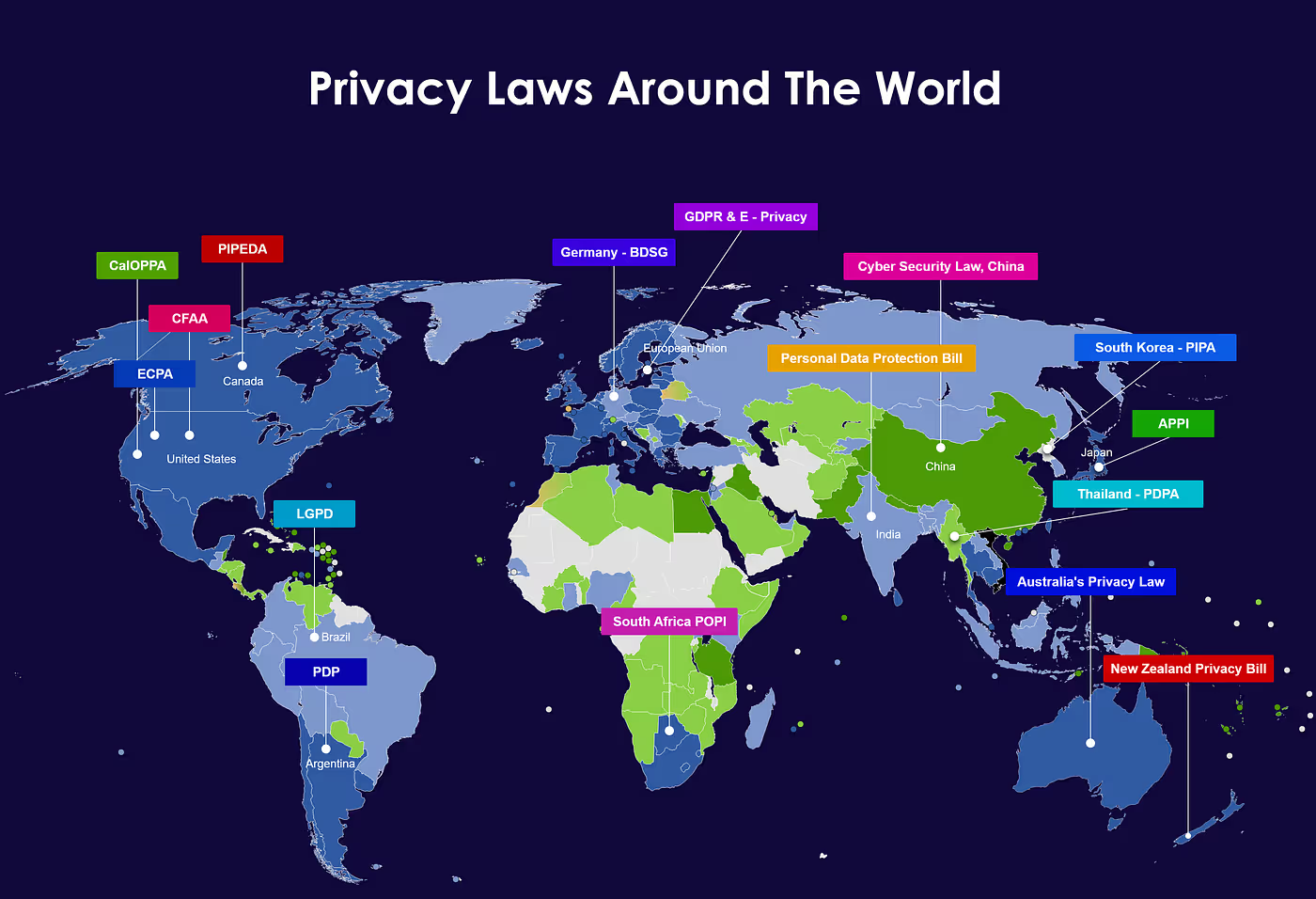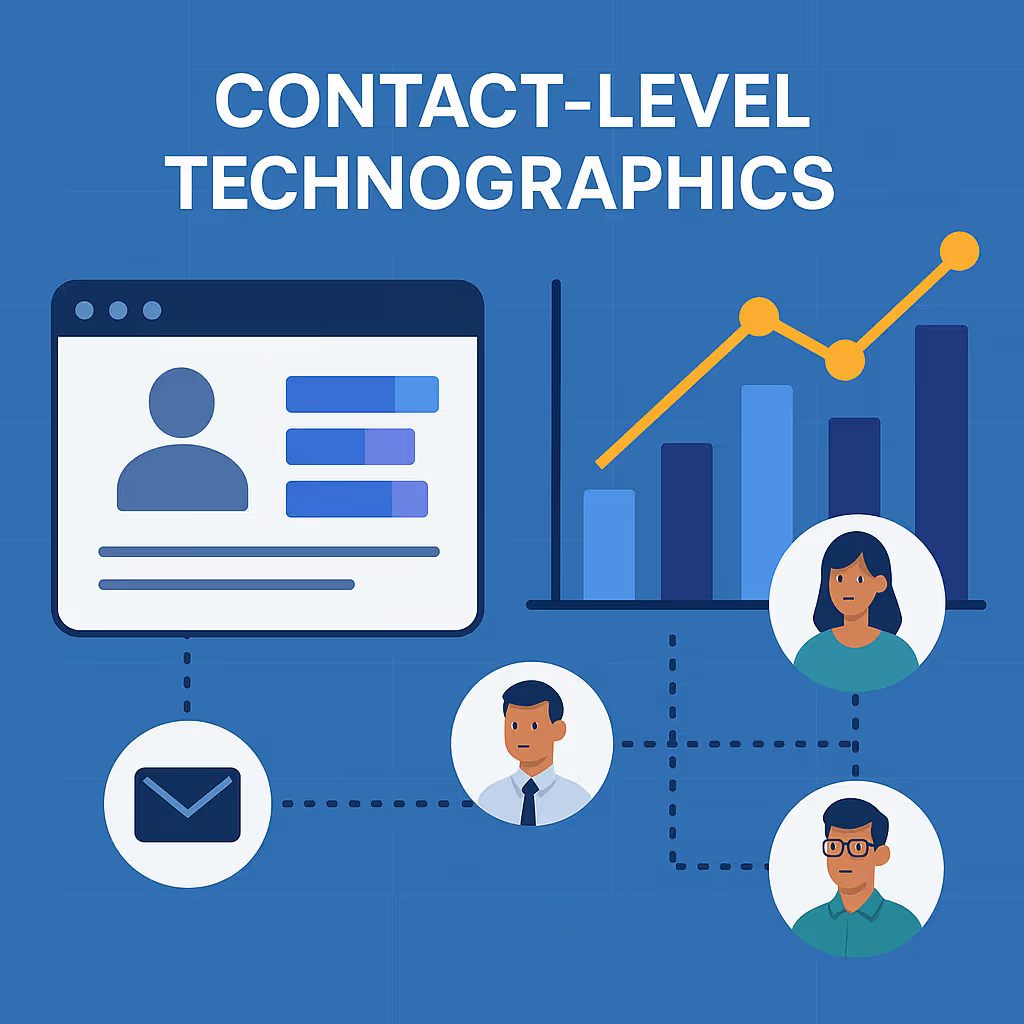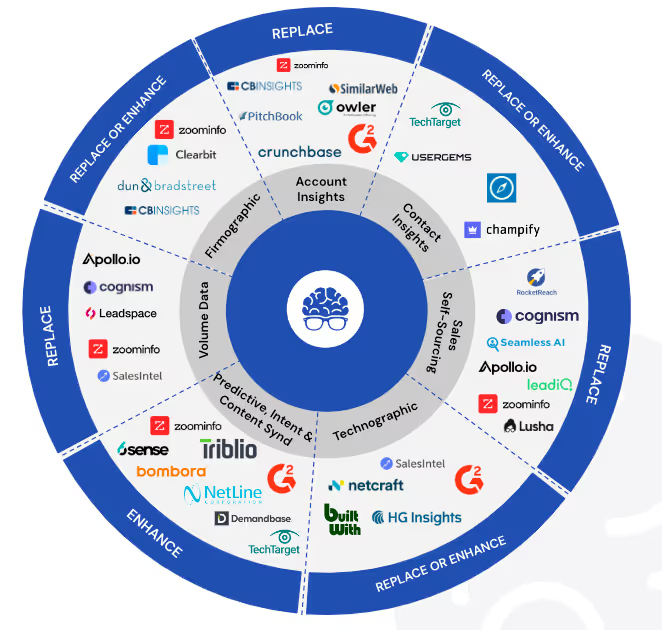The financial and operational anxieties of maintaining data compliance in an ever-evolving global landscape can keep even the most seasoned revenue and legal leaders up at night. Balancing the costs of compliance with the risks of non-compliance demands not only vigilance but a proactive approach to understanding and implementing robust data privacy measures. This comprehensive guide by LeadGenius not only navigates through the intricate maze of international data privacy regulations but also sets benchmarks for ethical data handling across various industries. From regular compliance audits and continuous employee training to advanced technological safeguards, join us as we delve into region-specific practices and strategic insights that ensure your organization remains ahead in compliance, all while preparing for a future where data privacy standards are universally stringent and uniformly applied.

Through our structured approach, you'll learn about:
- Regular Compliance Audits: Understand the objective, processes involved, benefits, and recommendations for ensuring ongoing alignment with international data privacy laws.
- Continuous Employee Training: Discover our comprehensive strategies for keeping all team members updated on the latest regulations and internal data handling policies, which safeguard against breaches and enhance our organizational culture of privacy.
- Advanced Technological Safeguards: Explore the cutting-edge technologies we employ to protect data integrity, confidentiality, and ensure secure access.
Additionally, this guide delves into our tailored strategies for specific regions, illustrating how LeadGenius ensures compliance through detailed protocols in countries like Brazil, Argentina, France, and Germany. Each section is dedicated to explaining how our coordinated efforts across revenue operations, legal, sales, and marketing departments contribute significantly to maintaining global data compliance, adapting to changes, and fostering trust with our clients.
Join us for an in-depth exploration of how top experts in global data privacy and compliance not only keep up with today's data privacy requirements but also stay ahead by preparing for future trends. We aim for a more standardized global approach to data privacy, similar to the GDPR. This forward-thinking strategy ensures compliance, boosts the effectiveness of our market entry plans, and builds stronger trust with consumers, distinguishing LeadGenius as a leader in customized data solutions.
Compliance Framework
1. Regular Compliance Audits
Objective: To routinely verify and ensure that all data handling practices align with both current international and local data privacy laws and regulations.
Process:
- Scheduled Audits: Conduct comprehensive audits at regular intervals (quarterly or biannually) to assess all data-related activities.
- Real-Time Monitoring: Implement monitoring tools that continuously track data usage and handling, alerting the compliance team to potential breaches or non-compliance.
- External Audits: Engage independent third-party auditors to provide an unbiased review of our data privacy practices and protocols.
Benefits:
- Ensures ongoing compliance with dynamic legal landscapes.
- Identifies potential risks and non-compliance issues proactively.
- Builds trust with clients by maintaining high standards of data integrity and protection.
Recommendations:
- Maintain a detailed audit trail for all data processing activities to enhance transparency and accountability.
- Regularly update audit protocols to incorporate new regulations and industry best practices.
2. Continuous Employee Training
Objective: To keep all team members updated on the latest data privacy regulations and LeadGenius’ internal data handling policies.
Process:
- Initial Training: Provide comprehensive training on data privacy laws, ethical data handling, and company policies to all new hires.
- Ongoing Education: Schedule regular training sessions to update employees on changes in privacy laws and internal procedures.
- Role-Specific Training: Offer specialized training tailored to the roles of employees who handle sensitive data more frequently, such as data analysts and marketing personnel.
Benefits:
- Ensures that all employees are knowledgeable and compliant with data privacy standards.
- Reduces the risk of data breaches and non-compliance due to human error.
- Enhances the company culture of privacy and security.
Recommendations:
- Utilize engaging training methods such as workshops, webinars, and interactive modules to improve learning outcomes.
- Conduct periodic assessments to test employee knowledge and effectiveness of the training programs.

3. Advanced Technological Safeguards
Objective: To use cutting-edge technology to protect data integrity, confidentiality, and access.
Process:
- Encryption: Employ strong encryption methods for storing and transmitting data to prevent unauthorized access.
- Access Controls: Implement strict access controls and authentication protocols to ensure that only authorized personnel have access to sensitive data.
- Data Anonymization: Use data anonymization techniques where appropriate to protect personal information while allowing for data utility.
Benefits:
- Minimizes the risk of unauthorized data access, theft, or loss.
- Supports compliance with data protection regulations that mandate specific security measures.
- Provides a technological backbone for secure data handling operations.
Recommendations:
- Regularly update and patch all data handling and security systems to defend against emerging threats.
- Invest in state-of-the-art security technologies and continuously evaluate new tools that can enhance data protection efforts.
Region-Specific Practices


Latin America
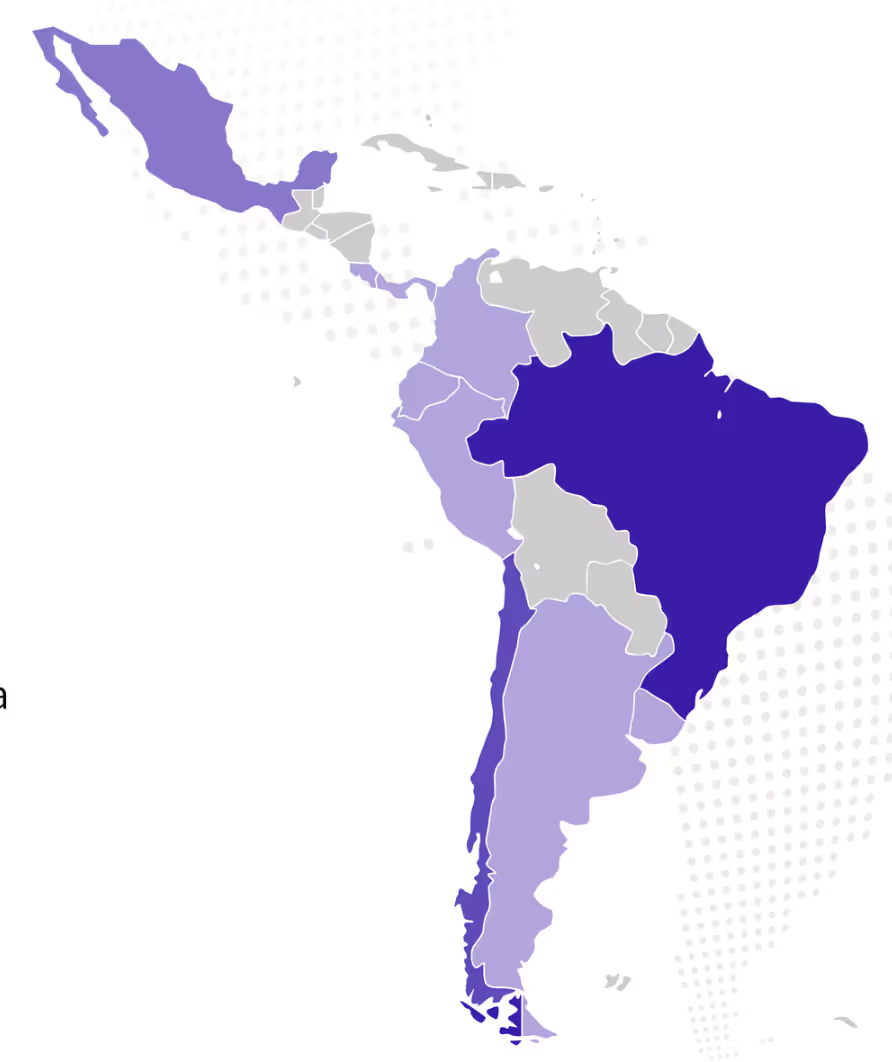
In recent years, Latin America has seen a significant transformation in its approach to data privacy, with Brazil leading the way through comprehensive legislative changes. These changes reflect a growing awareness of the importance of data protection and the need to align with global standards such as the European Union's General Data Protection Regulation (GDPR).
The Evolution of Data Privacy Laws in Brazil
Brazil enacted its Lei Geral de Proteção de Dados (LGPD), General Data Protection Law, in September 2020, marking a significant milestone in the region's data privacy landscape. The LGPD is heavily inspired by the GDPR and represents a paradigm shift in how personal data is handled across Brazilian businesses and government agencies.
Key Features of the LGPD:
- Scope of Application: The LGPD applies to any business or organization that processes personal data in Brazil, regardless of where the company is based, if the data processing activity is aimed at offering or providing goods or services in Brazil.
- Data Subject Rights: Brazilian residents are afforded extensive rights over their data, including the right to access, correct, delete, and confirm the existence of their personal data.
- Data Protection Officer (DPO): Organizations are required to appoint a Data Protection Officer to oversee data protection strategies and ensure compliance with the law.
- Legal Basis for Processing: Similar to the GDPR, the LGPD requires a legal basis for processing personal data, such as consent, compliance with a legal obligation, or the legitimate interests of the data controller.
- Penalties: Non-compliance can result in fines up to 2% of a company's revenue in Brazil, capped at 50 million Brazilian Reais per violation, and other severe penalties such as the public exposure of the infraction and the partial or total suspension of activities related to data processing.
The Impact on Businesses
The enactment of the LGPD necessitates significant adjustments for businesses operating in Brazil. Companies must reassess their data handling and protection mechanisms to ensure they are compliant with the new regulations. This includes revising privacy policies, enhancing security measures, and implementing adequate procedures for responding to data subjects' requests.
EMEA
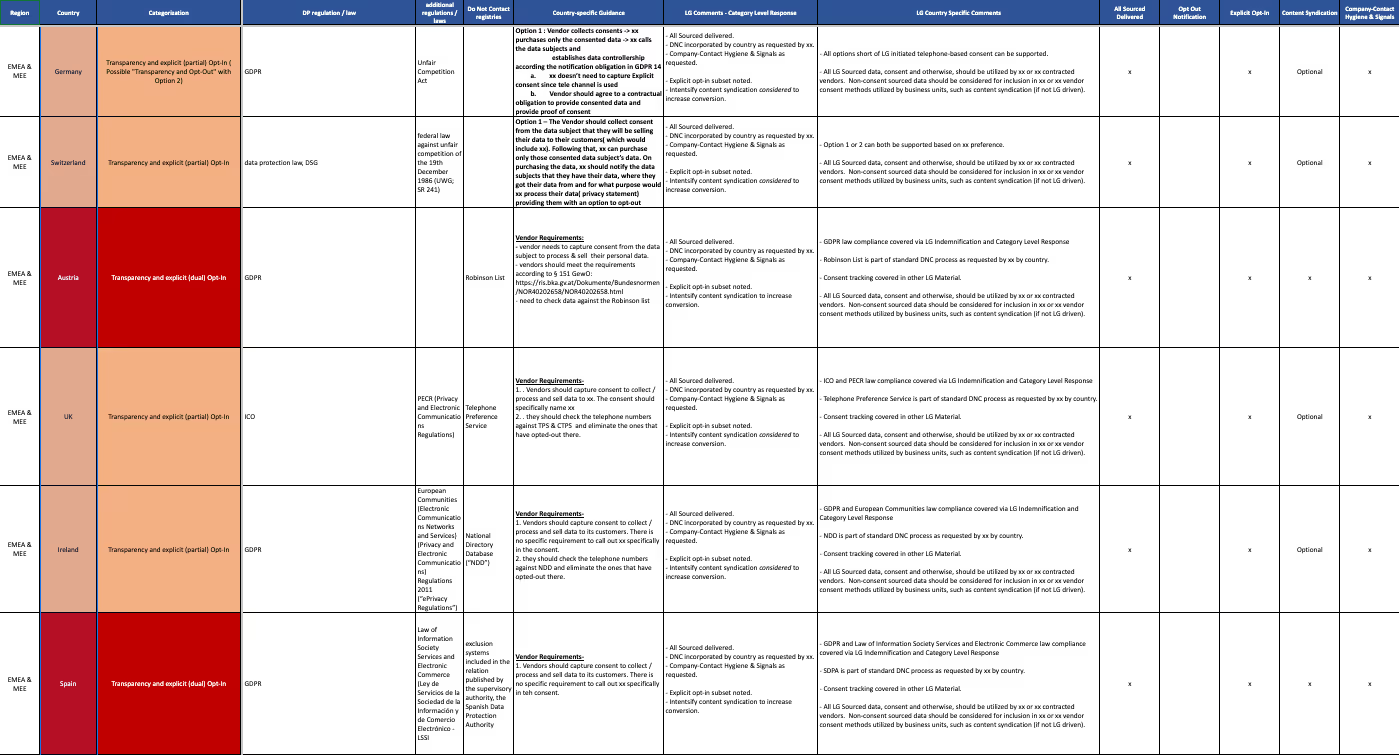

In the EMEA region, particularly in Germany and France, data privacy laws have undergone significant changes, reflecting a broader trend across Europe influenced by the General Data Protection Regulation (GDPR). These changes are indicative of a growing commitment to strengthen data protection and enhance privacy rights, impacting businesses and consumers alike.
Germany: A Strong Focus on Individual Rights and Compliance
Germany has long been a forerunner in data protection, with its Federal Data Protection Act (Bundesdatenschutzgesetz, BDSG) predating and complementing the GDPR. The GDPR's enactment in 2018 required adjustments to the BDSG to align with EU-wide regulations, resulting in the BDSG-new.

Key Features of German Data Protection:
- Stringent Compliance Requirements: The German approach emphasizes strict adherence to data protection principles, requiring businesses to implement robust measures to ensure data accuracy, limitation, and security.
- Data Protection Officers (DPOs): German law mandates that companies appoint a DPO if they process data that requires regular monitoring of data subjects on a large scale or process special categories of personal data.
- Employee Data Privacy: Germany has specific rules for employee data protection, requiring employers to justify any collection and processing of employee data under strict conditions.
- Rights of Data Subjects: Individuals have extensive rights including access, rectification, deletion, and opposition to processing, which companies must facilitate effectively.
France: Comprehensive Protection with a Focus on Digital Rights
In France, the data protection landscape is primarily governed by the GDPR and supplemented by national laws, particularly the French Data Protection Act, overseen by the Commission Nationale de l'Informatique et des Libertés (CNIL).
Key Features of French Data Protection:
- National Specificities: While the GDPR sets the framework, France has specific provisions, especially in areas like digital marketing, human resources, and health data, where the CNIL provides detailed guidelines.
- CNIL's Active Role: The CNIL not only enforces compliance but also offers guidance to businesses on best practices for data protection, reflecting its proactive stance in safeguarding digital rights.
- Consent and Privacy Policies: France emphasizes the need for clear, affirmative consent for data processing, especially in digital contexts. Companies must provide detailed, transparent privacy policies that are easily accessible to users.
- Penalties: France has imposed some of the highest fines under GDPR, highlighting its rigorous enforcement regime.
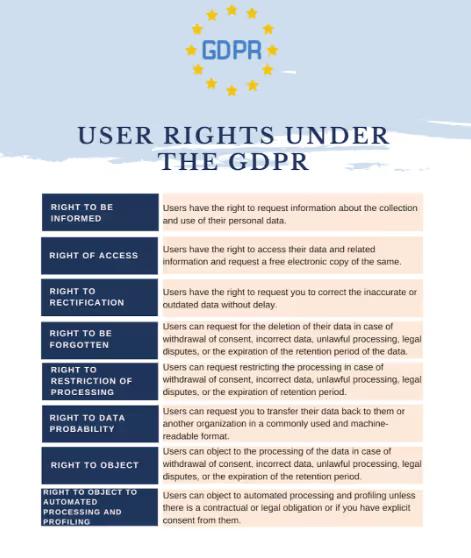
The Impact on Businesses
Businesses operating in Germany and France must navigate a complex landscape of EU-wide regulations coupled with specific national laws. This requires a dual approach to compliance that respects both the overarching standards set by the GDPR and the local variations dictated by national authorities.
Challenges and Solutions
- Challenge: Navigating the complex and stringent data privacy regulations in the European Union, especially under GDPR.
- Solution: LeadGenius employs an advanced compliance strategy, focusing on strict adherence to GDPR alongside national regulations. Our approach includes ongoing legal reviews, technology updates to ensure data security, and thorough training programs for all employees on data protection practices. This comprehensive compliance ensures that our data handling methods not only meet but exceed the requirements laid out by European data protection standards, thus maintaining our integrity and the trust of our clients.
APJ
In Asia, particularly in South Korea and Japan, the evolution of data privacy laws reflects a commitment to enhancing protections and rights for consumers and businesses alike. These developments are influenced by global data protection trends and are tailored to address local cultural and regulatory nuances.
South Korea: Advanced Data Protection with a Technological Edge
South Korea is recognized for its advanced approach to data privacy, governed by the Personal Information Protection Act (PIPA), which was significantly amended in 2020 to align more closely with global standards like the GDPR.
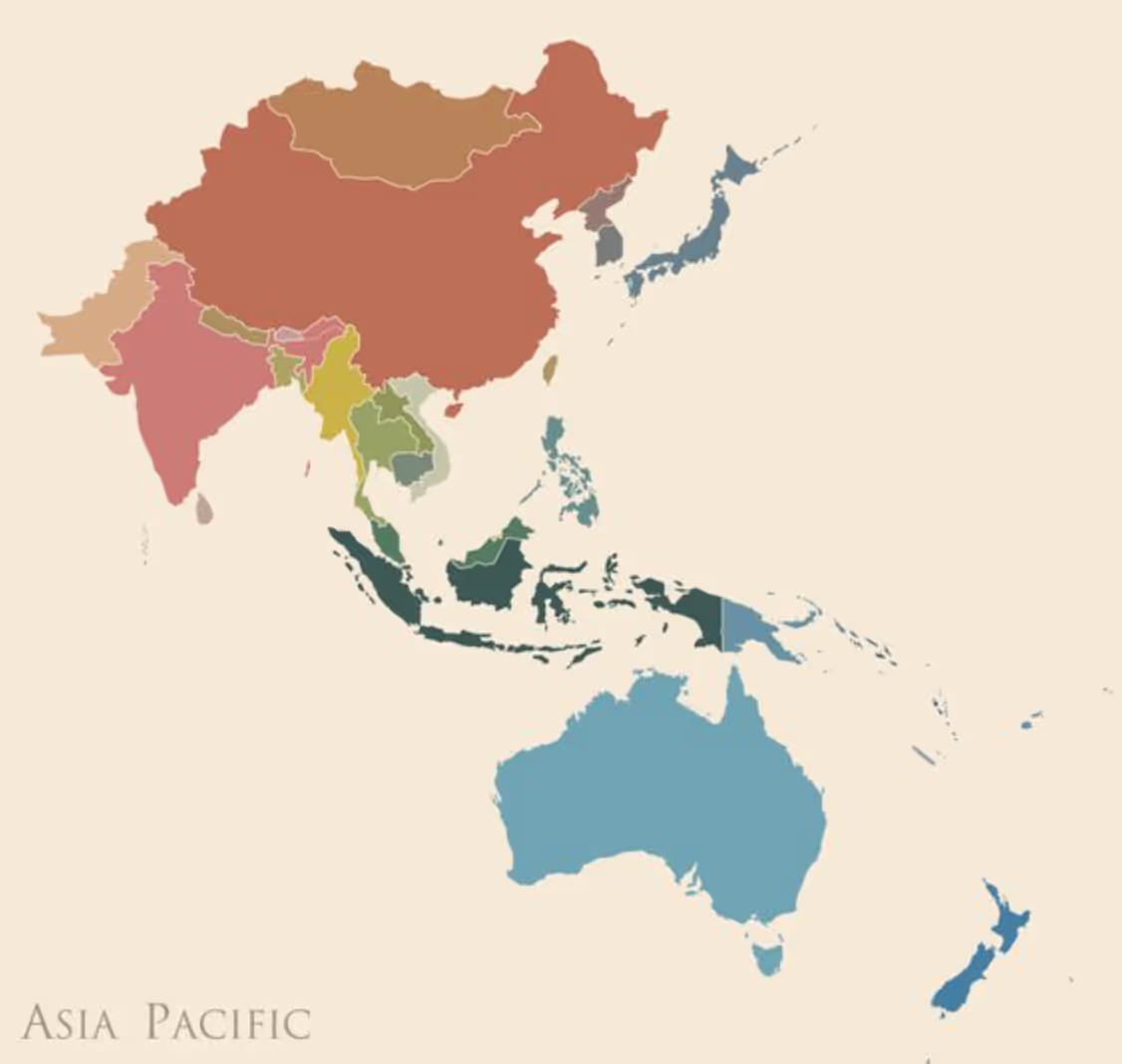
Key Features of South Korean Data Protection:
- Comprehensive Coverage: PIPA applies broadly to both public and private sectors, regulating the processing of all personal data.
- Data Protection Officer (DPO): Similar to European regulations, South Korea requires the designation of a DPO for organizations that handle significant amounts of sensitive data.
- Consent and Rights: The rights of data subjects are extensive, including the right to be informed of data usage, to access, correct, and request the deletion of their data. Consent must be explicitly obtained and is tightly regulated.
- Cross-Border Data Transfer: Restrictions on international data transfers are stringent, requiring specific conditions to be met, such as consent from the data subject or adequacy decisions.
Japan: Balancing Tradition with Progressive Data Laws
Japan's approach to data privacy is encapsulated in the Act on the Protection of Personal Information (APPI), which underwent significant amendments in 2020 to provide stronger data protection and align with international standards.
Key Features of Japanese Data Protection:
- User Consent: APPI emphasizes the importance of consent for data processing, though it is less stringent than in South Korea or the EU.
- Data Protection Commission: The establishment of a personal information protection commission as an independent regulatory authority signifies Japan’s commitment to enforcing its data privacy laws.
- Business Operator Obligations: Organizations are required to take necessary and proper measures to secure personal information, with a focus on preventing leakage, loss, or damage.
- Cross-Border Considerations: The transfer of personal data outside of Japan is subject to strict regulations, ensuring that data is protected to a standard that meets or exceeds that of APPI.
The Impact on Businesses
The changes in data privacy laws in South Korea and Japan illustrate an increasing alignment with global data privacy movements, while still reflecting unique local considerations. Businesses operating in these countries need to be vigilant and proactive in complying with these regulations. LeadGenius remains committed to maintaining the highest standards of data privacy and compliance, ensuring that our practices not only meet but exceed the requirements set forth in these regions, thus reinforcing our commitment to data protection and consumer trust.
Who Owns Compliance?
In the evolving landscape of global data compliance, the roles of revenue operations (RevOps), legal, sales, and marketing teams are crucial. As data privacy regulations become more stringent and complex, the collaboration among these teams is key to ensuring that LeadGenius not only meets but exceeds compliance requirements while driving business growth. Here’s how each department contributes to maintaining global data compliance and how the stakes have changed with the tightening of data privacy laws.
Revenue Operations (RevOps)
Role: RevOps serves as the strategic backbone, integrating sales, marketing, and customer success operations to optimize the revenue stream. In the context of data compliance, RevOps ensures that all data-related processes are aligned with business goals and compliance standards.
Responsibilities:
- Data Management and Integrity: Overseeing data capture, storage, and utilization processes to ensure they are compliant with both local and international laws.
- System Integration: Ensuring that CRM and other data systems are set up to enforce compliance rules automatically.
- Performance Metrics: Monitoring compliance as a key performance indicator across departments to gauge effectiveness and identify areas for improvement.

Legal Team
Role: The legal department is responsible for interpreting data privacy laws and ensuring that all company practices are in compliance with these regulations.
Responsibilities:
- Regulatory Updates: Keeping abreast of global data privacy laws and advising on necessary adaptations in business practices.
- Contract Management: Drafting and reviewing contracts to include data protection and privacy clauses that comply with international standards.
- Compliance Audits: Coordinating with external auditors and internal teams to conduct regular compliance checks and address any legal vulnerabilities.
Sales and Marketing Teams
Role: These front-line teams are directly involved with customer data through their daily activities. Their compliance with data privacy laws is crucial for maintaining customer trust and legal integrity.
Responsibilities:
- Consent Management: Ensuring all data collected from prospects and customers has clear, compliant consent, particularly for marketing activities.
- Data Minimization: Adopting practices to collect only the data that is necessary for the specific purpose stated, respecting the privacy of individuals and reducing risk.
- Customer Communication: Informing customers about the privacy practices and rights they have with regard to their data, which is often mandated by laws like GDPR.
Changing Stakes
With the increasing emphasis on data privacy globally, the stakes for non-compliance have risen dramatically. Penalties for data breaches and non-compliance can include substantial fines, legal action, and severe reputational damage. Moreover, consumers are becoming more aware and cautious about their data rights, and their trust in a brand is heavily influenced by how a company handles their personal information.
The alignment of these departments to uphold data privacy is not just about avoiding negative consequences; it is a strategic advantage. Companies like LeadGenius that can demonstrate robust compliance and ethical data practices are more likely to win and retain trust from global clients, particularly those in highly regulated industries or regions.
Data Handling Innovations
1. Content Syndication
Objective: To leverage content distribution across various channels to generate leads while ensuring compliance with data privacy laws.
Process:
- Targeted Distribution: Content is tailored and distributed to specific segments based on opt-in data, ensuring that recipients have consented to receive marketing materials.
- Compliance Integration: Each piece of content is checked for compliance with data privacy laws relevant to the recipient's location, ensuring adherence to regulations like GDPR or CCPA.
- Analytics: Engagement and interaction data are collected and analyzed to refine future content strategies and ensure they meet the audience's preferences and legal standards.
Benefits:
- Drives lead generation through precise and relevant content.
- Enhances customer engagement by respecting their data privacy choices.
- Provides valuable insights into customer preferences and behavior.
2. Company-Contact Hygiene & Signals
Objective: To maintain the cleanliness and relevance of contact data while integrating timely signals that indicate key changes or opportunities within target companies.
Process:
- Regular Data Cleansing: Automated and manual processes ensure that all contact data is accurate and up-to-date, removing or correcting outdated or incorrect information.
- Signal Integration: Incorporates real-time signals such as hiring trends, funding news, and market expansions into the database to provide sales and marketing teams with actionable insights.
- Privacy-First Approach: All data updates and signals are collected and integrated in compliance with applicable data privacy laws, ensuring that no privacy boundaries are crossed.
Benefits:
- Ensures high data quality and relevance, increasing the efficacy of marketing and sales campaigns.
- Provides dynamic insights into potential business opportunities, allowing for timely and informed decision-making.
- Reduces the risk of data decay and compliance issues related to outdated information.
3. Explicit Opt-In Practices
Objective: To ensure that all data collected is done so with clear, informed consent from individuals, aligning with stringent data protection regulations.
Process:
- Clear Communication: Each opt-in form is designed to be easily understandable, with clear information on what data is being collected and how it will be used.
- Consent Management: Maintains a robust system for managing and documenting consents, allowing for easy withdrawal of consent as required by law.
- Regular Review: Opt-in practices are regularly reviewed and updated to align with changes in law and best practices, ensuring ongoing compliance and respect for user preferences.
Benefits:
- Builds trust with users by transparently requesting and managing their consent.
- Enhances legal compliance, significantly reducing the risk of penalties related to non-compliance.
- Ensures a high level of engagement from a well-informed audience, improving the overall effectiveness of marketing efforts.
Challenges and Solutions
- Challenge: Adapting to diverse data privacy regulations across different countries.
- Solution: LeadGenius employs a localized approach, ensuring that our data collection and processing techniques are fully compliant with each country’s legal requirements. This involves customizing outreach and data handling methods based on local laws and customer expectations.
Future Outlook on Data Privacy Laws
Global Convergence of Data Privacy Standards
The trend is moving towards a more unified global standard for data privacy, similar to the General Data Protection Regulation (GDPR) in Europe. The United States, traditionally fragmented in its data privacy laws with regulations varying by state (such as the California Consumer Privacy Act or Virginia's Consumer Data Protection Act), is increasingly recognizing the need for a more cohesive federal-level policy. This shift is driven by the need for consistency in protecting consumer privacy while maintaining an environment conducive to digital trade and commerce.
Implications for Businesses
For businesses, particularly those operating internationally like LeadGenius, the harmonization of data privacy laws means reevaluating and possibly overhauling existing data protection measures to comply with not only local but also international standards. The focus will likely be on:
- Enhanced Consumer Rights: Similar to GDPR, future U.S. regulations may emphasize increased control for individuals over their personal data, including rights to access, correct, delete, and restrict the processing of their data.
- Stricter Compliance Obligations: Businesses may need to implement more stringent data governance practices, ensuring transparency, security, and accountability in data processing activities.
- Cross-Border Data Flows: With a potential new U.S. framework, there could be a smoother mechanism for data transfers between the U.S. and other regions, which would be particularly relevant for companies like LeadGenius that operate on a global scale.
LeadGenius’ Strategic Response
As the landscape evolves, LeadGenius is well-positioned to navigate these changes due to our proactive approach to data privacy and protection. Our strategy includes:
- Continuous Monitoring and Adaptation: Keeping abreast of legislative developments and adapting our practices accordingly to ensure compliance and maintain our competitive edge.
- Investment in Technology: Leveraging advanced technologies to enhance data protection capabilities, such as improved encryption methods, robust data anonymization techniques, and AI-driven compliance tools.
- Stakeholder Engagement: Collaborating with policymakers, industry groups, and privacy advocates to influence and anticipate changes in the regulatory environment.
Educating and Empowering Clients
In addition to refining our internal practices, LeadGenius will continue to educate and empower our clients on best practices for data privacy. This ensures that our clients not only benefit from our compliance but are also well-equipped to handle their data responsibly.
Parting Thoughts
As the United States moves towards a more unified approach to data privacy, mirroring the comprehensive policies seen in EMEA and LATAM, LeadGenius remains committed to its role as a leader in ethical data practices. By continuously refining our strategies, we ensure top-tier compliance and security, setting a standard in the industry and providing unrivaled value to our clients. This proactive stance not only prepares us for upcoming changes but also reinforces our commitment to privacy and data integrity in the global marketplace.
With LeadGenius, global and vertical-specific clients, including giants like Amazon, Google and Microsoft, can be assured of data that is not only comprehensive and customized but also fully compliant with international data privacy norms. This assurance is crucial for effective go-to-market strategies and maintaining consumer trust.


